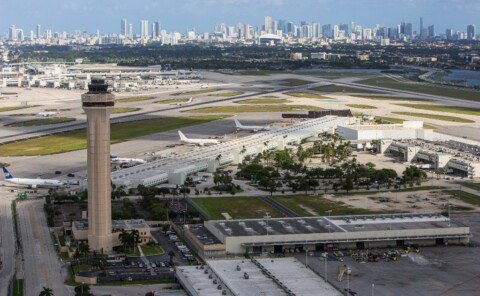Air France KLM Martinair Cargo (AFKLMP) is reallocating its freighter capacity from the Latin American market to focus on the rapidly expanding Asian market. The carrier announced the launch of a new Boeing 747-400 freighter service between Amsterdam Schiphol and Hong Kong via Dubai, starting on September 19. Initially, the service will operate three times per week, increasing to four weekly flights at the start of the winter season on October 27.
This marks the first time in nearly nine years that KLM/Martinair freighters will fly to Hong Kong. The new service will offer approximately 110 tonnes of capacity per flight.
As a consequence of the new Hong Kong flights, AFKLMP will suspend some of its services in Latin America. Currently, the carrier operates flights to Guatemala City, Quito, Bogota, Sao Paulo, Buenos Aires, and Santiago. An updated schedule shows continued operations only to Bogota, which will operate three times per week via Miami. Despite these changes, AFKLMP remains committed to the Caribbean and Latin America through its extensive belly network, offering 145 weekly belly flights to 24 destinations in the region.
Adriaan den Heijer, executive vice president cargo at Air France KLM and managing director Martinair, explained the strategic shift: “In the East Asian market, the e-commerce segment is growing steadily, driving increased demand for efficient and reliable airfreight solutions. The introduction of this new Boeing 747 freighter service is a crucial step in adding main deck capacity to our extensive belly network. This expansion not only strengthens our freighter footprint in Asia but also offers more options and greater flexibility to our customers.”
The Hong Kong flights will depart Amsterdam on Monday (from Oct 27), Tuesday, Thursday, and Saturday, with return flights departing Hong Kong on Tuesday (from Oct 27), Wednesday, Friday, and Sunday.
The shift comes as capacity from the Central/South America region has surged over the past year. Data from WorldACD shows a 22% year-on-year increase in cargo capacity based in the region, while demand has only risen by 7%. Consequently, rates from the region have decreased by 6% compared to last year. Conversely, rates from Asia and the Middle East have surged, with WorldACD data showing increases of 54% and 24%, respectively.







